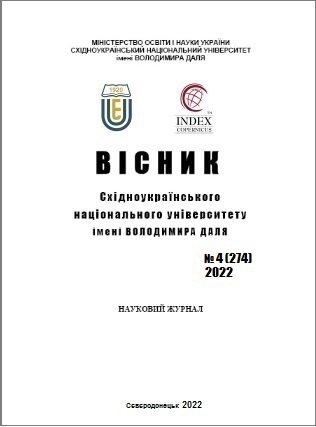Transport logistics as a tool for increasing the efficiency of the organization
DOI:
https://doi.org/10.33216/1998-7927-2022-274-4-48-52Keywords:
logistics tools, logistics, transport networks, logistics system, logistics activityAbstract
The presented work describes the logistics activity of the enterprise (organization) from the point of view of the use of transport logistics. The essence of transport logistics, as a scientific and practical tool for the joint management of many economically independent market structures, which allows to achieve a rational organization of flow processes that occur in a space-time sequence, with the aim of identifying and implementing potential management reserves and obtaining additional income and profit by these structures, mainly at the expense of socially useful, mainly industrial, factors and sources.
Logistics activities at the enterprise are carried out with the help of the development of a logistics plan, on the basis of which a logistics strategy is formed. In the process of developing a logistics plan and strategy, the purpose and tasks of logistics activity, as well as its direction, are the defining components. Regarding the interpretation of the specified characteristic elements of logistics activity by scientists, there is no single point of view here either. It should be noted that the existing differences in views are characteristic of the stage of formation and development of logistics activity as a type of economic activity.
The logistics activity of the enterprise should ensure the optimization of sales activities and the acceleration of its management processes. The development of transport logistics in particular ensures the optimization of distribution and promotion channels, which in turn becomes one of the competitive advantages of an organization or enterprise.
When writing the work, the method of analysis was used to determine the essence of the concept of transport logistics, the methods of induction and deduction to form an idea about the logistics activity of the organization (enterprise).
The main result of the presented work is the confirmation of the thesis that the interests of consumers require from the manufacturing companies not only the adaptation of the product to the needs of a specific buyer, but also the support of constant feedback with him and the adaptation of the entire chain to such needs. The result of the implementation of these conditions is an increase in the quality of service and, above all, a reduction in the time of order fulfillment and compliance with the agreed delivery schedule.
References
1. Волкова Е. Основные проблемы управления материа-льными запасами/ Е. Волкова, Г.А.Портнова//Актуальні питання менеджменту в сучасних умовах/Донец. нац. техн. ун-т. Донецьк, 2007. С.288-290
2. Голота О. П. Економічні чинники воєнної безпеки [Текст] / О. П. Голота, В. В. Леонов // Стратегічні пріо-ритети. 2012. Т. 2, № 23. С. 160–166.
3. Дикань В.Л. Актуальность улучшения системы комби-нированных перевозок в международной транспортной сети. Вісник економіки транспорту і промисловості: Зб. наук. праць. Харків: УкрДАЗТ, 2006. № 13. С. 13–20.
4. Крикавський Є.В. Логістична концепція європейської інтеграції економіки України / Є.В Крикавський // Ви-пуск XXIV НАН України. Львів: Інститут регіональних досліджень. 2001. С. 555–558.
5. Михальчук Л. Ю. Аналіз впливу логістичних витрат на ефективність функціонування логістичної системи. Ві-сникХмельницькогонаціональногоуніверситету. 2009. №1. С. 30–34.
6. Mariya Naumenko, Nataliia Valiavska, Mariia Saiensus, Olena Ptashchenko, Vitalii Nikitiuk, Anton Saliuk, Optimization Model of the Enterprise Logistics System Using Information Technologies, International Journal of Management, 11 (5), 2020, pp. 54-64. http://www.iaeme.com/IJM/issues.asp?JType=IJM&VType=11&IType=5
7. Птащенко О.В., Кущ Я.М. Особливості логістичної ді-яльності в різних умовах господарювання. Бізнес Ін-форм. 2019. №12. C. 234–239.
8. Птащенко О.В., Архіпова Д.Є. Особливості логістич-ного процесу в сучасних умовах господарювання. Нау-ковий фаховий журнал «Вісник Київського національного університету технологій та дизайну. СЕРІЯ «ЕКОНОМІЧНІ НАУКИ». – Київ, КНУТД, 2019. - № 6 (141), 2019. – С. 148–155.
https://doi.org/10.30857/2413-0117.2019.6.14
9. Сток Дж. Р. Стратегическое управление логистикой / Дж. Р Сток., Д.М. Ламборт. – М.: ИНФРА-М. 2013. 797 с.
10. Устенко М.О «Основні проблеми транспортної логіс-тики» УкрДАЗТ // Вісник економіки транспорту і про-мисловості. 2010. № 29. С. 2–5.
11. Хазанович О. І. Система матеріально-технічного за-безпечення. Ретроспектива розвитку та напрямки удо-сконалення / О. І. Хазанович. К. : Наука і оборона. 2007. № 1. С. 53-57.

